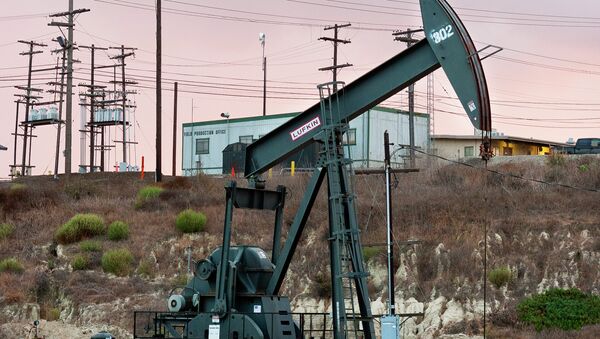"I don't believe in the conspiracy theory. I think the source of the problem is not political but the lack of solution to the problem is political. [There are] people who refuse to do anything about it, maybe for political reasons…. But they really don't have the means to change the supply and demand balance just like that," Rumhy said.
The Oman energy minister added that the current situation on the global oil market developed over a long period of time, with a number of factors, including shale oil production, contributing to its aggravation.
Rumhy noted that both OPEC and non-OPEC oil producers are among those who fail to take decisions that could have led to stabilization.
Global oil prices have dropped almost twofold from the summer of 2014 levels of $115 per barrel of Brent Crude, causing damage to oil-dependent economies including Russia. Earlier this week, Marie-Jose Nadeau, the chair of the World Energy Council, said that the oil prices will eventually settle at $70 per barrel.
Non-members of the Organization of Petroleum Exporting Countries (OPEC) also contributed to the decline in global crude prices and should consider cutting oil production, Oman's Oil and Gas Minister said.
"I agree with Saudi Arabia and others who put some of the blame on non-OPEC members. So we have to take this responsibility and Oman is willing to discuss reduction in production," Mohammed Rumhy said.
The Minister added that he understands that not all the countries are willing or able to cut their current oil output.
"But there are countries like us who can reduce and I think we should reduce for the benefits of our people," Rumhy said.
Rumhy, however, added that Oman is currently not initiating any discussions on the matter with other oil exporting states.
"OPEC is still the best organization to address these issues. I predict that OPEC will take the initiative, maybe not in their next month meeting but in [some] subsequent meeting," Rumhy said.
Global oil prices dropped 50 percent since summer 2014 due to oversupply in the global market. In November 2014, OPEC member states decided not to reduce their output levels, which led to an even greater decline in prices.


